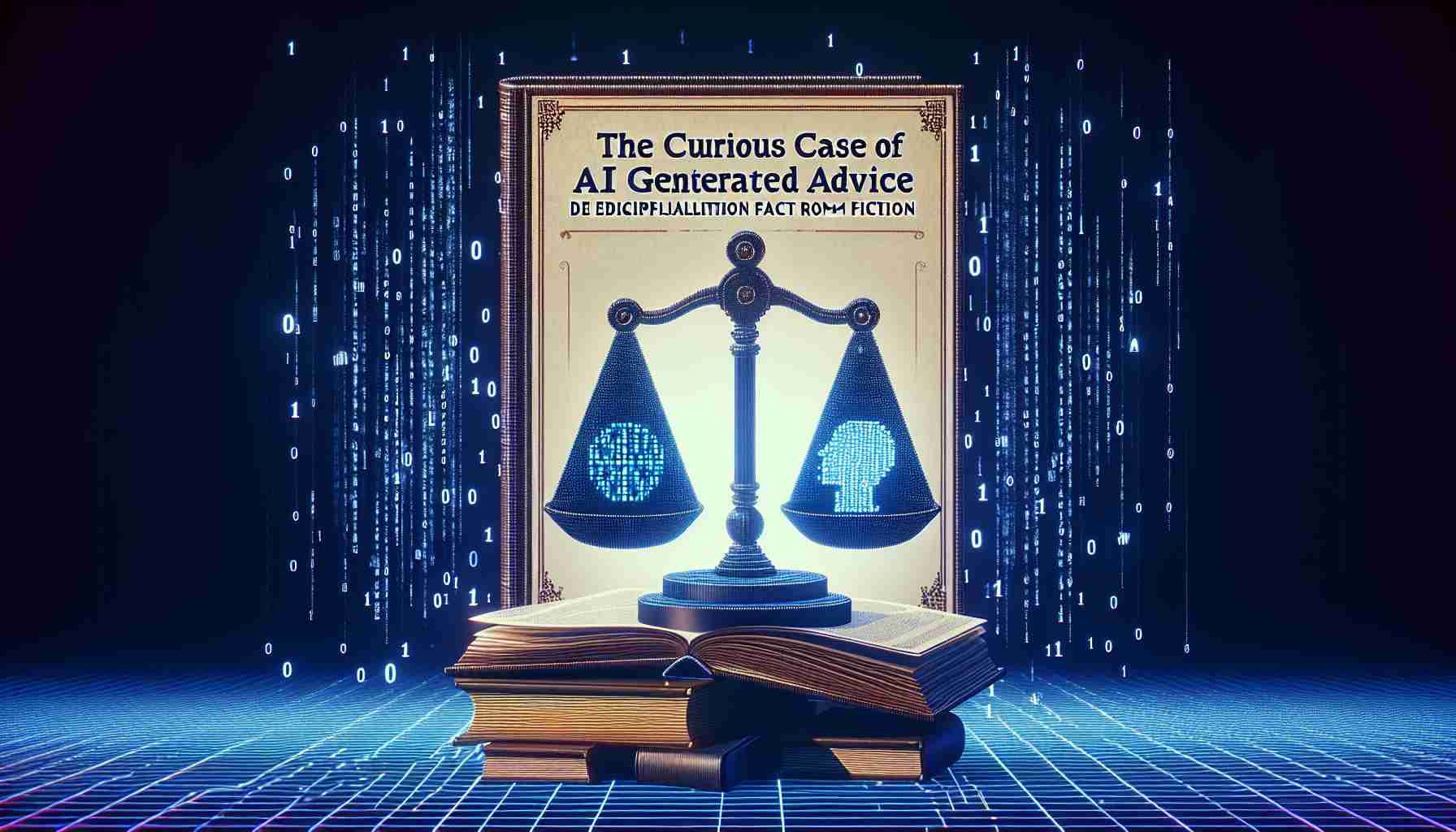In the digital age, accessing information has never been easier. Search engines like Google serve as our portals to a vast wealth of knowledge, instantly providing answers to our myriad of questions. However, the journey to access reliable information can come with unexpected detours.
As Google introduces a new feature called AI Overview in the United States, it aims to provide immediate responses to user queries upfront, followed by links to sources where the data was extracted. This reflects a continuing trend to enhance user experience by streamlining access to information.
Humorous technological missteps, such as suggesting absurd cooking recipes or misinterpreting feline behavior, have been shared by people who encountered them. These instances highlight the inherent challenges in deploying generative language models, which attempt to predict text continuation based on probability without truly comprehending the content.
For instance, a chatbot for New York state businesses was found giving advice that could lead to legal violations, reflecting the current imperfections of this rapidly advancing technology. The bot, drawing information from various online resources, including the discussion forum Reddit, mistakenly advised practices that could have severe repercussions for its users.
Reddit, with its medley of good advice interspersed with humor, has exemplified the danger of leaning too heavily on unvetted user-generated content. An 11-year-old joke post about adding glue to pizza, evidently satirical, could be misinterpreted by AI as legitimate advice.
The quest to resolve this “mythical untruthfulness” is no small feat. As tech companies scramble to incorporate AI into their offerings, the risk of deceptive information being perceived as credible increases. Situations could arise where the guidance given, although not overtly ridiculous, could prove to be dangerously misleading.
In light of these developments, a cautious approach is recommended when seeking advice on the internet, as the distinction between fact and farce becomes ever more nuanced in the age of artificial intelligence.
Relevant Facts:
– AI-generated advice is based on algorithms that process vast amounts of text data, an area commonly known as natural language processing (NLP).
– The emergence of sophisticated AI models like OpenAI’s GPT-3 has significantly advanced the capability of machines to generate human-like text.
– AI systems, while effective in many aspects, lack real-world common sense and the ability to discern context in the way humans can.
– Such systems can perpetuate existing biases found in the training data, which can lead to discriminatory or ethically dubious advice.
– Companies like Google constantly refine their algorithms to improve the reliability of the information provided by AI services.
Important Questions and Answers:
Q: How do AI systems generate advice?
A: AI systems use machine learning to analyze large datasets and generate responses based on patterns and statistical correlations in the data.
Key Challenges and Controversies:
– Ensuring AI systems provide accurate and safe advice remains a significant challenge.
– The potential for perpetuating misinformation and biases within AI-generated content is a source of controversy.
– Securing user trust in AI-generated advice requires mechanisms to verify the accuracy and accountability of the information provided.
Advantages and Disadvantages:
Advantages:
– AI can process and summarize information more quickly than humans, making it an efficient tool for providing advice.
– It can be available 24/7, providing immediate assistance to users.
– AI has the potential to democratize access to information and advice across various fields and disciplines.
Disadvantages:
– AI may inadvertently disseminate incorrect or harmful information.
– It struggles with understanding nuance, context, and humor, leading to potential misunderstandings.
– There is a risk of dependency on AI-generated advice, which may diminish critical thinking and self-research skills among users.
For those interested in further exploring the broader subject of AI and its impact on information dissemination, consider visiting the websites of leading AI research organizations and technology companies. A legitimate website that can provide additional insights is:
Another credible source for understanding the ethical implications of AI and its uses in providing advice is:
Please note that URLs and the mentions of organizations are included as suggestions for further research and are valid to the extent of my last update. Always ensure the validity of a URL before visiting it.

